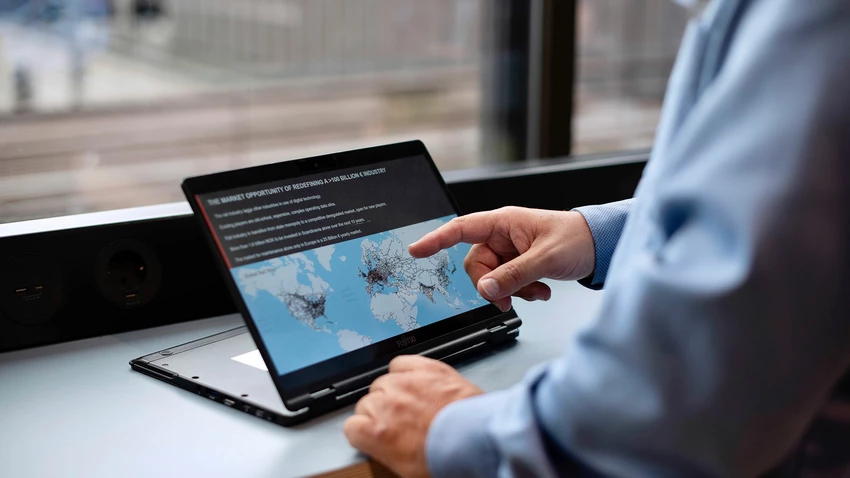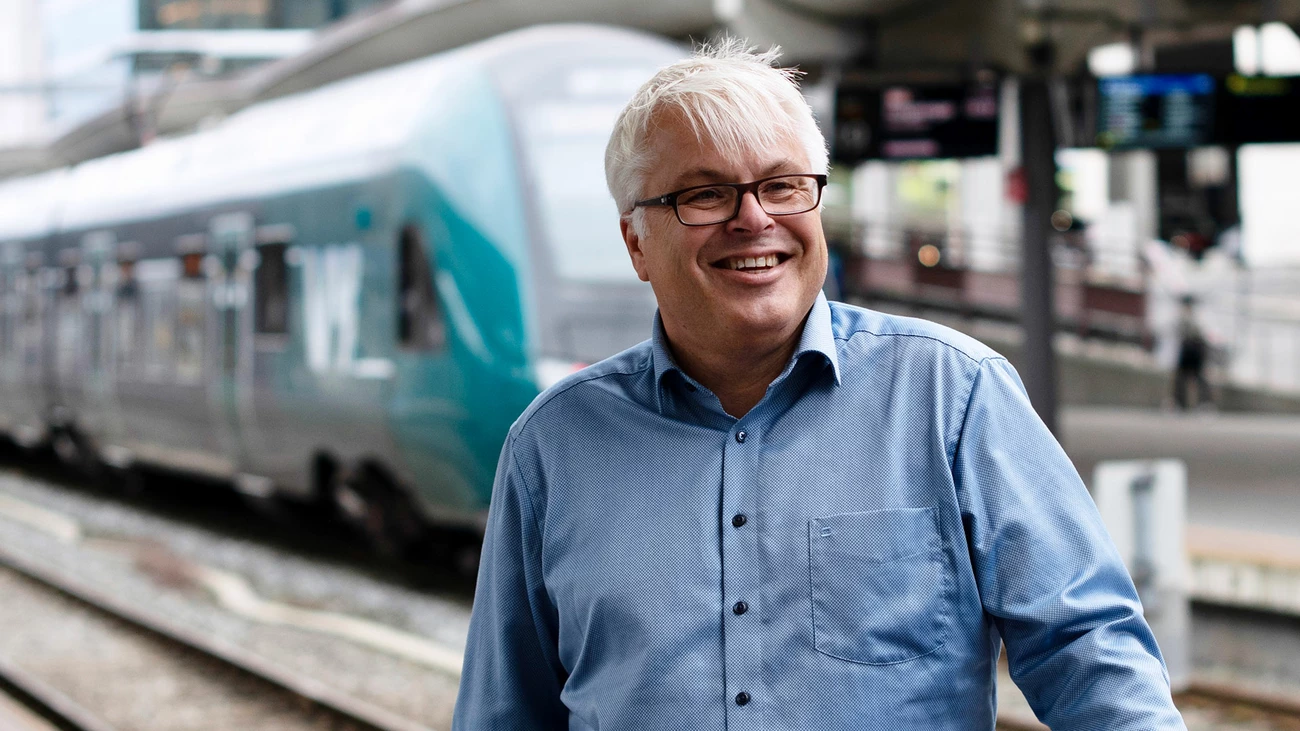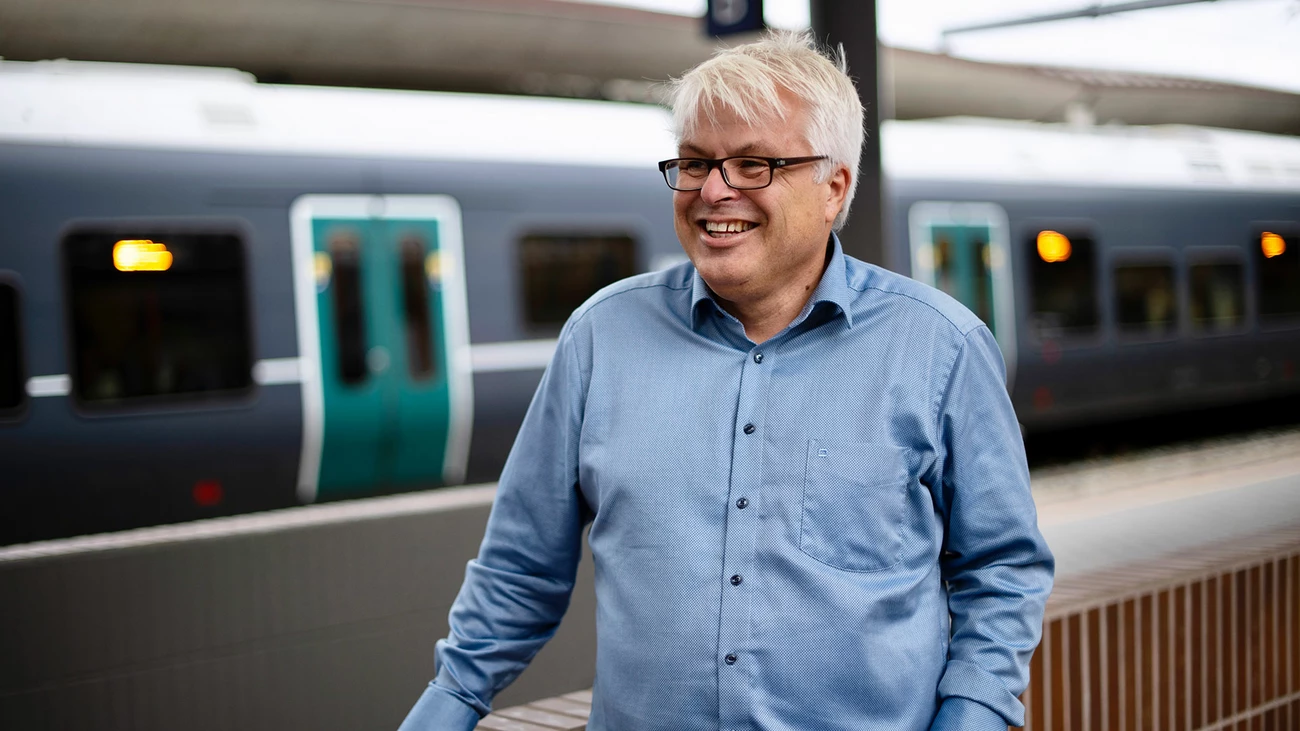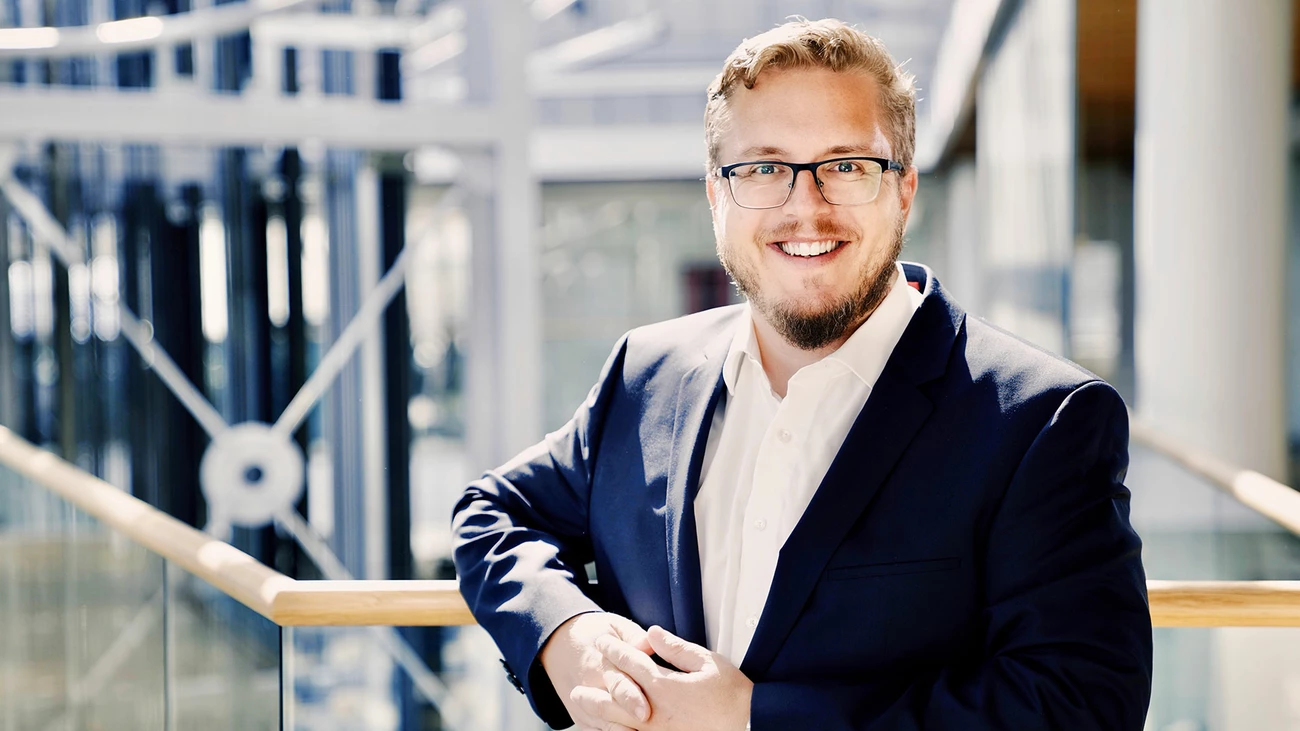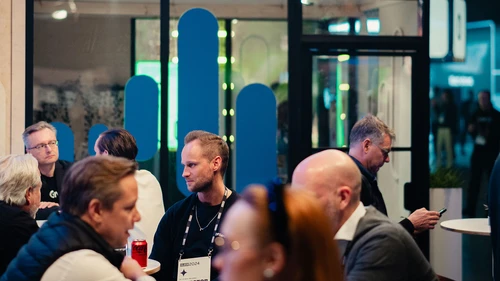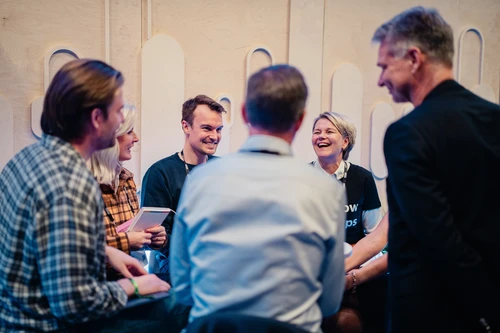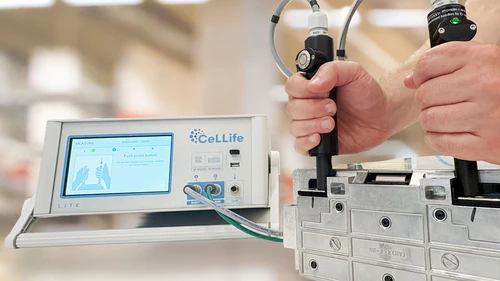“Our goal is a turnover of NOK 500m, 300 employees and a global market position by 2025. To achieve this we had to look beyond our local bank. Getting Nordea and our account manager Joakim on board was crucial.”
Are Sandersen, CEO of the rail tech company Cemit, is visiting Oslo Central Station during the afternoon rush hour. After a couple of decades in the railway industry and many years as a commuter, he knows how important reliable trains are for both passengers and the environment.
“If we want the railway industry to be part of the green transformation and compete with electric cars and buses, consumers need to be able to rely on trains running on schedule. That is not the situation today.”
Increasing competitiveness
Together with a few former colleagues he founded the company Cemit in 2018. They started as a consultancy company for trains and railways, but now develop technology based on sensors and artificial intelligence. Their goal is to revolutionise the railway industry – not just in Norway, but on a global scale.
“Trains and railways are struggling with huge efficiency losses and maintenance costs. Our technology can help reduce maintenance costs and improve punctuality, efficiency, reliability and operational communication,” Are explains.
“Our goal is to increase efficiency and digitalise an industry known for being a bit stuck in their old ways. We hope to strengthen the competitiveness of sustainable transport options such as trains.
No big surprises
By fitting sensors inside the trains, Cemit can monitor tracks continuously. The sensor data is analysed using advanced intelligent algorithms to identify deviations and to precisely predict when maintenance is necessary.
“We collect data from different parts of the railway infrastructure to compile it into a complete picture. We’re able to track developments ahead in time, whether it’s about the signalling system, contact line system or the track itself,” Are explains.
“Not only does it save time and money. We also avoid big surprises that lead to complete traffic stops and affect us passengers.
